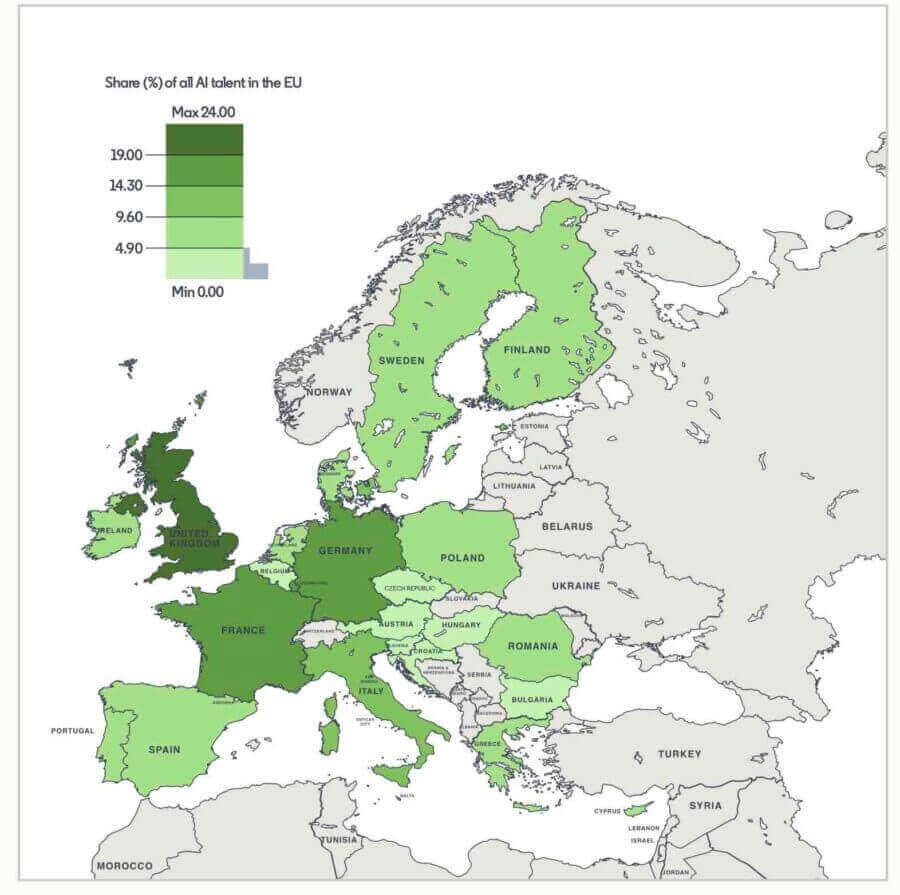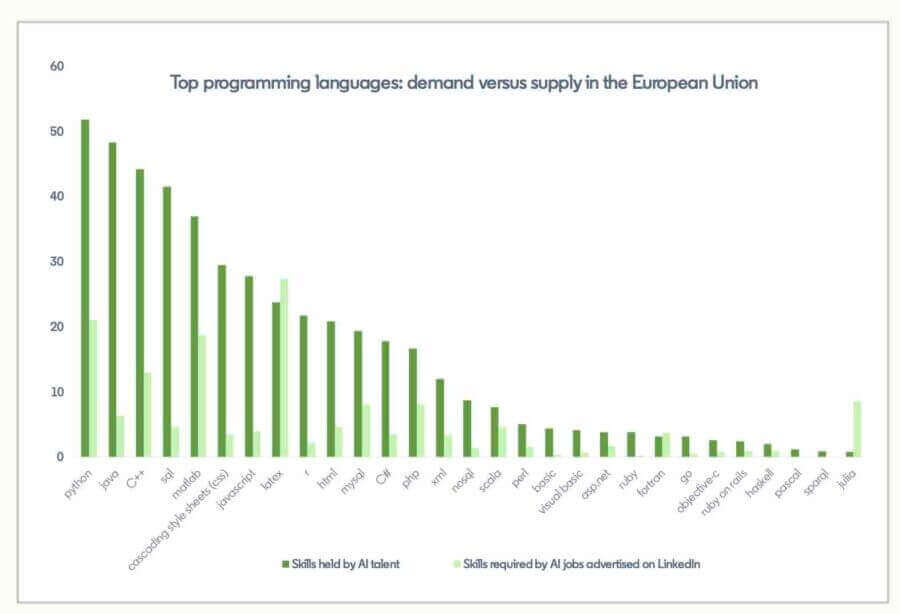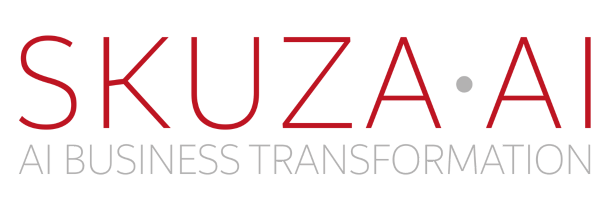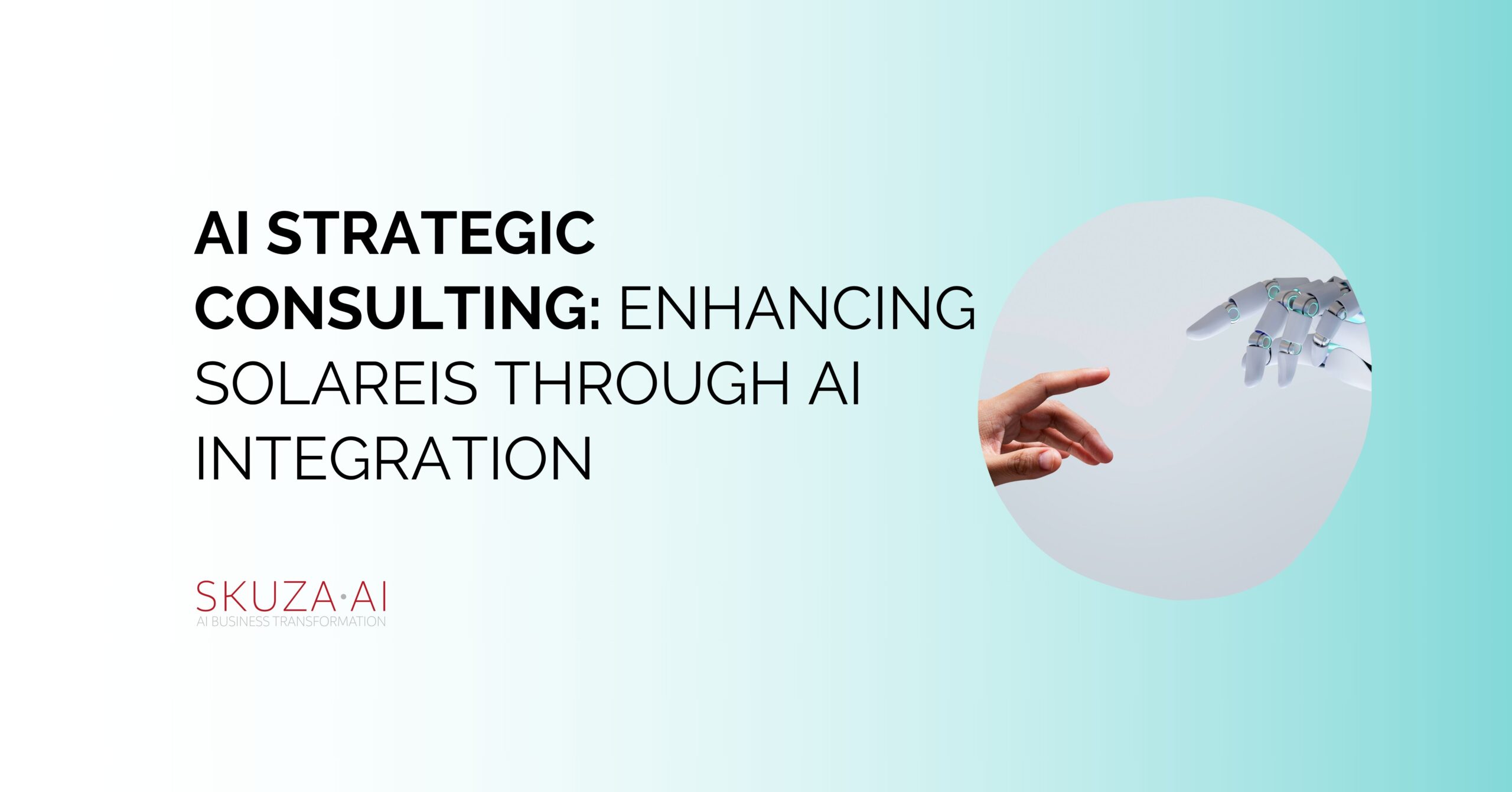I have recently been studying a great summary of how the European Union shapes Artificial Intelligence talent, creates the labor market in AI, and why it is lagging internationally. There are many challenges in Europe, and I have found this topic fascinating.
LinkedIn’s Economic Graph team prepared the report, and the whole piece is available here.
In this post, I want to summarize my observations and add my comments and compare EU performance to the USA achievements.
Artificial Intelligence talent distribution in the EU

Most AI talent is concentrated in Western Europe, which is a starting point for the whole insight. Smart, well-educated people, who can contribute to Artificial Intelligence development, mostly live and work in the United Kingdom, France, and Germany.
The rest of Europe looks like a desert. Countries like Poland, Romania, Czech Republic, Bulgaria are behind, even though they have a reliable educational system.
Finland, which has a solid telecommunication background, Sweden with retail and energy business or Ireland, which attracted companies like Google and Apple- these countries play smart strategy. They are very active in attracting AI talents from different regions. While their education system can’t build a robust talent pipeline, companies and the government work hard on attracting talents from different countries.
[elementor-template id=”3496″]Artificial Intelligence talent in Europe likes specific industries
AI is not limited to any specific sector; the majority of the EU’s AI talent is found in the technology, education, and manufacturing sectors. In the USA situation looks the same. Surprisingly, the financial or healthcare industry is not at the top of the ladder. AI absorption in these sectors is not as fast as it might look like.
Germany stands out of the crowd. This country leads Europe with AI in the manufacturing and automotive industry. 50% of the talent in Germany is concentrated in the manufacturing and automotive business. The same trend follows with finance in the UK, manufacturing in Italy and Sweden, healthcare in Belgium, and the telecommunication in Finland.
In the USA, the Artificial Intelligence marketplace is dominated by new entrants and digital natives.
Digital natives are companies that exist in the digital world, meaning they primarily or entirely generate value online. Contrary to digital natives are digital immigrants. This type of company arrived in the digital world. It absorbed online world rules, create value online, but this is not the company’s natural world. Most players that will significantly accelerate the development of AI in Europe will come from the world of digital immigrants.
Talents in the European Union have a higher level of education than those in the USA
People in the EU are better educated than workers in the USA. 56% of Europeans hold either a master’s degree or a doctorate compared to 34% of AI workers in the USA.
The educational system in the European Union originates from cultural expectations about the desired level of postsecondary education. It is not clear if there is a straight connection between the level of education and AI talent quality. Pathways to develop AI talent are not discovered yet, and the future might expect to redesign educational systems in the USA and the EU.
Moreover, there is no AI field of study. Most of the talent comes from Computer Science studies, which means it needs to develop AI skills by taking additional courses.
Computer Science, Electronics Engineering, and Computer Engineering are at the top of the ladder, and most of the AI talents shape in these fields of study. These fields “deliver” AI workers specialized in programming languages, AI-related libraries, and soft skills. The last group of expertise is not necessary yet, as companies struggle to recruit technical talent. AI skills are in such high demand that the lack of softer skills such as collaboration and teamwork are less of a concern for employers at this point. This is likely to change with the diffusion of AI across industries.
Companies in Europe are looking for specific technologies and skills:
- latex
- julia
- matlab
- pytorch
- opencv
- caffe
- pandas
- numpy
- pyspark
- scipy

The list is longer, but if you are thinking about picking up your next course or certificate, the LinkedIn report recommends these as a good investment.
What can the European Union do to accelerate AI development and business application?
a) Incentivize researchers and academia, which should bring more articles published in academic journals. AI needs a lot of research, test and trial, and laboratory type of approach. One of the critical metrics that mirrors the researchers’ engagement is the number of articles they publish
b) The industrial ecosystem plays a significant role in strengthening education programs and bringing research to the market. The last element is essential, as delivering results of the study to market means that services and products that leverage AI are introduced to customers. University-industry collaboration can help develop programs that pave the way for research to reach the market launch milestone.
c) Incentivize companies can attract AI talent to these countries to struggle in building an AI talent pipeline. With proper support, well-established companies can build self-sustaining AI clusters. AI talent is clustered mostly in the UK, France, and Germany. Other countries need to accelerate processes of attracting talents, and the corporate world is the gateway to that change. Research suggests that while some Eastern European countries (Estonia, Slovenia) have invested in the AI talent pipeline, other countries like Poland, Romania, Hungary, Czech Republic need to act quickly. If they ignore the process, they will find themselves behind everybody, which will influence their economic growth.
d) While the USA outperforms the EU when it comes to building a robust AI-talent pipeline, the European Union ecosystem leverage cooperation more than the competition. This is a massive chance for the EU to create an all members talent pool and connect big businesses, universities, and research centers in the effort of developing and implementing AI.

